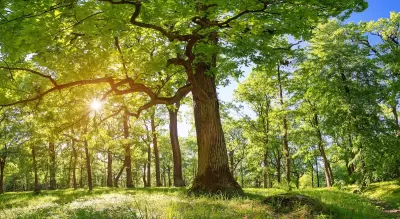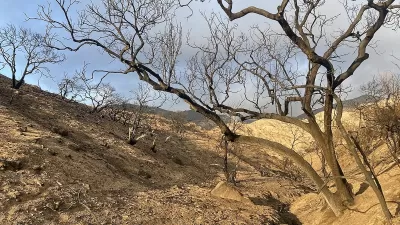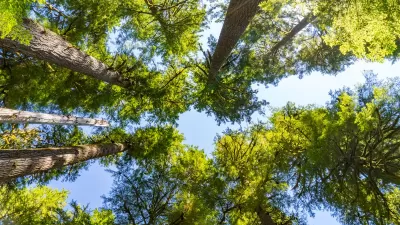Climate change is endangering oaks in the Great Lakes region by increasing their vulnerability to pests, diseases, and extreme weather, threatening their vital ecological role.

Oaks in the Great Lakes region face increasing threats from climate change, including rising temperatures, severe storms, and invasive pests, according to a study by Michigan Technological University. These conditions are stressing oak populations, leaving them vulnerable to diseases like oak wilt and attacks from insects such as the two-lined chestnut borer. The warming climate also extends the range and lifespan of harmful pests, exacerbating their impact on these vital trees. Oaks play a crucial ecological role, providing food and habitat for various wildlife species, including bears and turkeys, making their decline a significant environmental concern.
Invasive species and insufficient fire management further contribute to the challenges oaks face. The Michigan Tech study warns of emerging pests like oak gall wasps and stresses the need for vigilance in timber imports to prevent the spread of harmful insects. Historically, oaks thrived due to their adaptability to fire disturbances, which helped suppress competing species. However, the decline in controlled burns has reduced their ability to regenerate, compounding the threats posed by climate change.
Despite these challenges, oaks demonstrate resilience through their adaptation to extreme conditions and extensive root systems. Researchers emphasize the importance of monitoring pest populations and maintaining fire as a landscape management tool. Addressing these issues will be critical to preserving oak ecosystems and their broader environmental benefits in the face of a changing climate.
FULL STORY: Climate change puts oak trees in Great Lakes at risk

Planetizen Federal Action Tracker
A weekly monitor of how Trump’s orders and actions are impacting planners and planning in America.

Chicago’s Ghost Rails
Just beneath the surface of the modern city lie the remnants of its expansive early 20th-century streetcar system.

San Antonio and Austin are Fusing Into one Massive Megaregion
The region spanning the two central Texas cities is growing fast, posing challenges for local infrastructure and water supplies.

Since Zion's Shuttles Went Electric “The Smog is Gone”
Visitors to Zion National Park can enjoy the canyon via the nation’s first fully electric park shuttle system.

Trump Distributing DOT Safety Funds at 1/10 Rate of Biden
Funds for Safe Streets and other transportation safety and equity programs are being held up by administrative reviews and conflicts with the Trump administration’s priorities.

German Cities Subsidize Taxis for Women Amid Wave of Violence
Free or low-cost taxi rides can help women navigate cities more safely, but critics say the programs don't address the root causes of violence against women.
Urban Design for Planners 1: Software Tools
This six-course series explores essential urban design concepts using open source software and equips planners with the tools they need to participate fully in the urban design process.
Planning for Universal Design
Learn the tools for implementing Universal Design in planning regulations.
planning NEXT
Appalachian Highlands Housing Partners
Mpact (founded as Rail~Volution)
City of Camden Redevelopment Agency
City of Astoria
City of Portland
City of Laramie





























